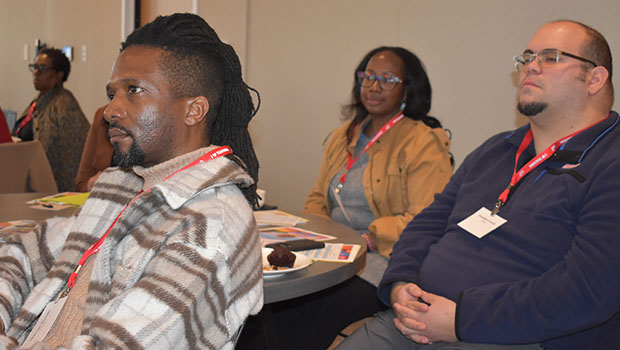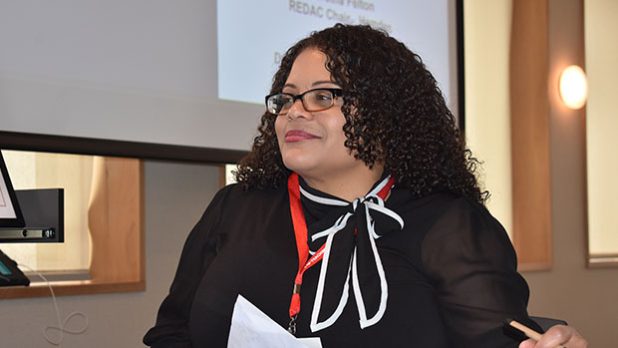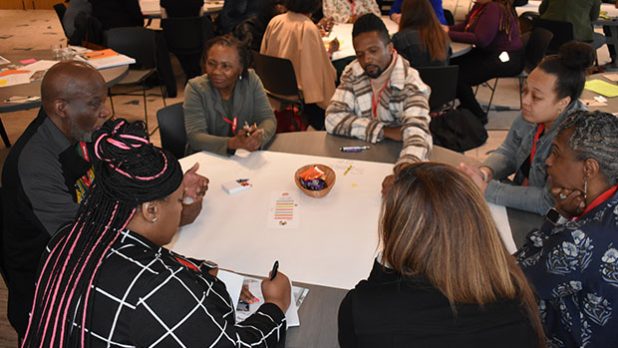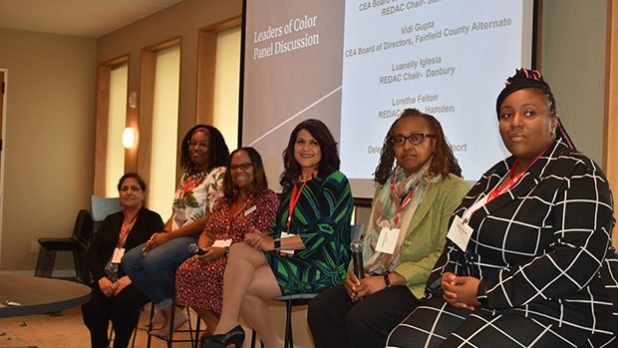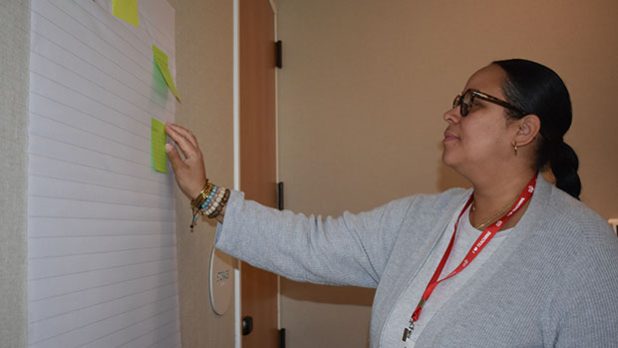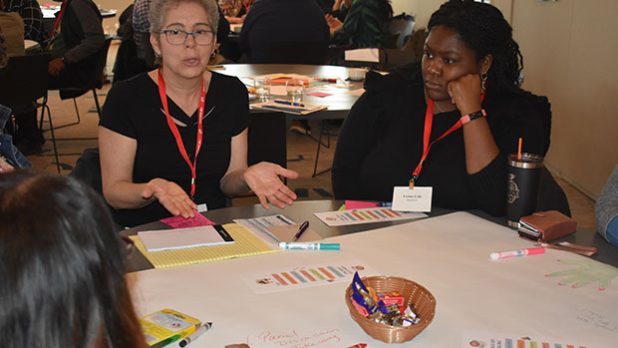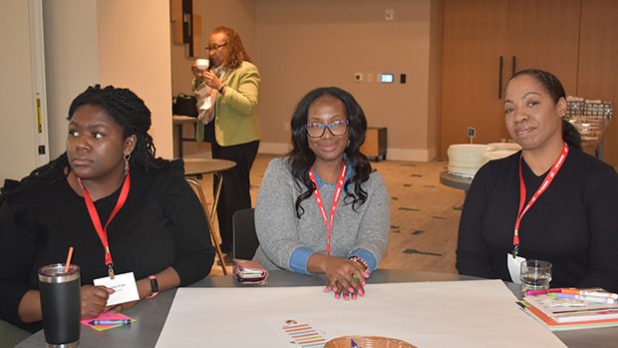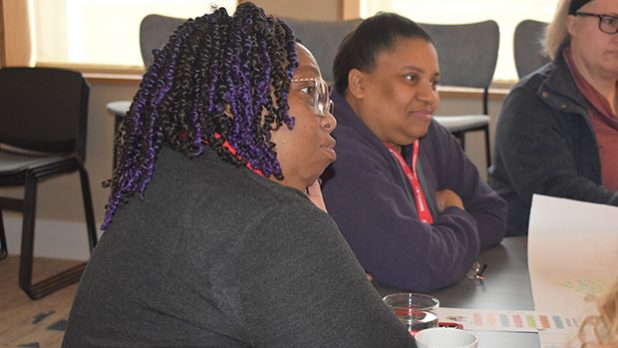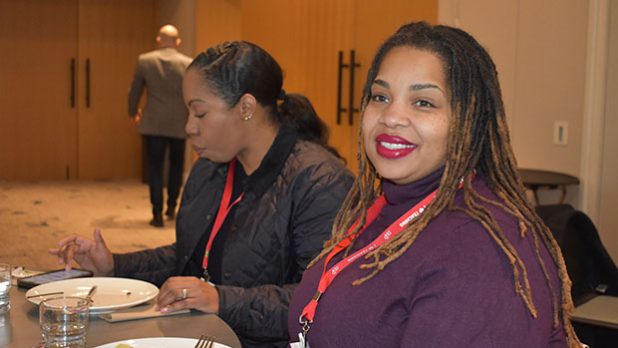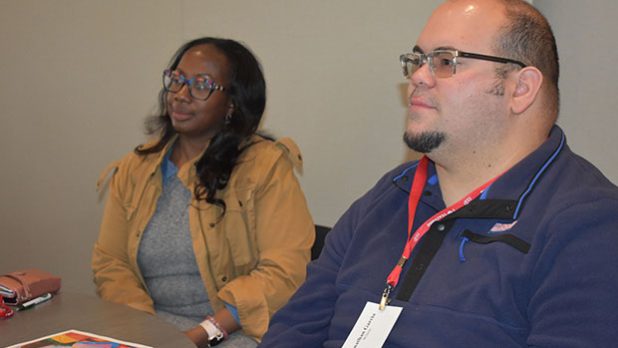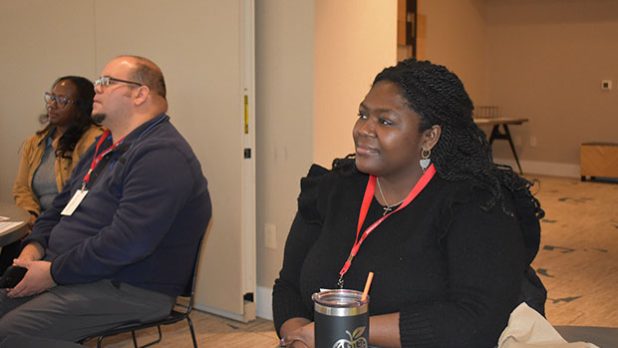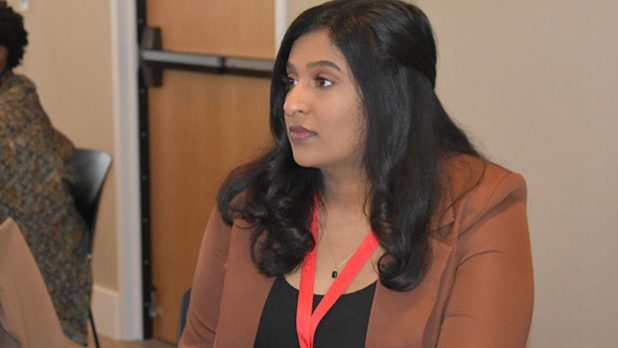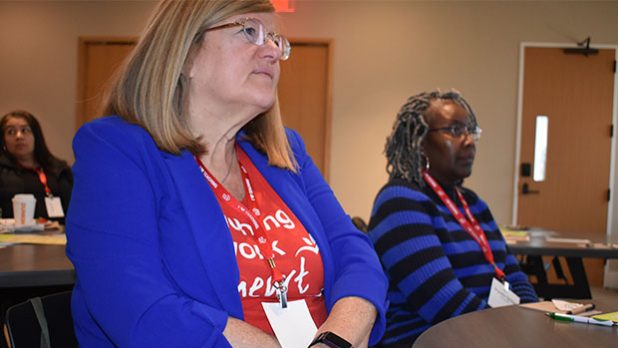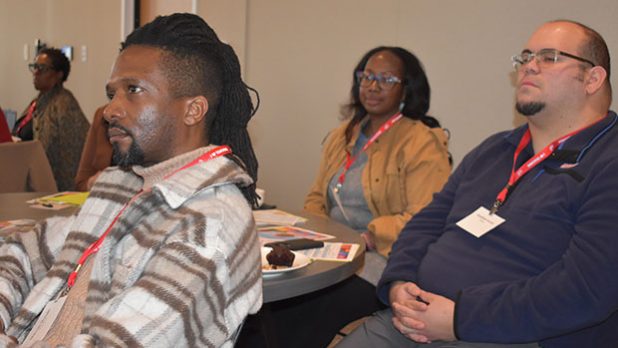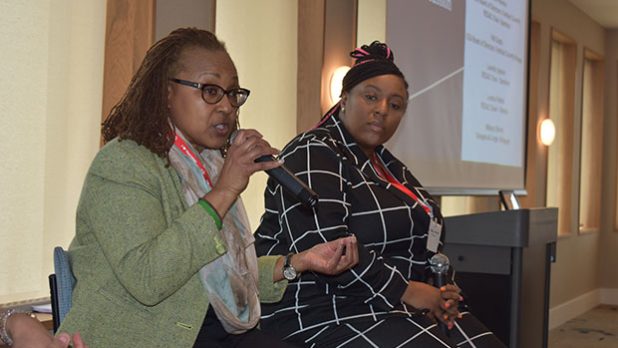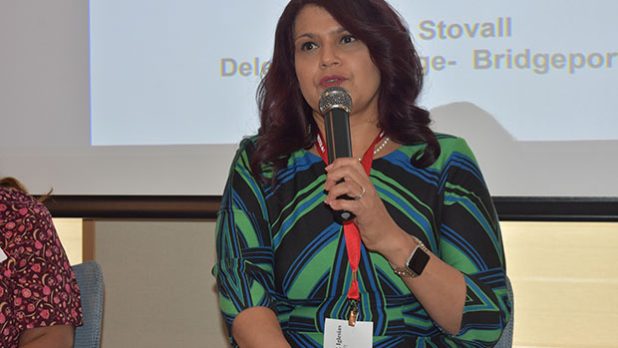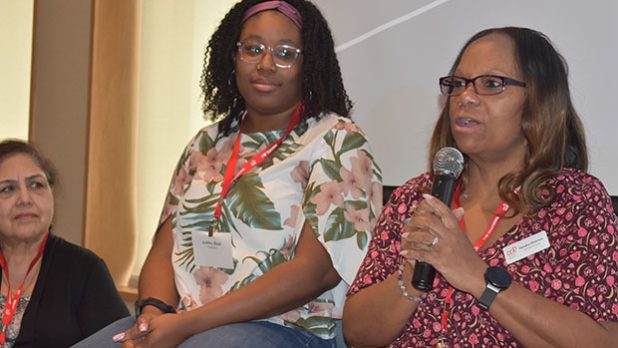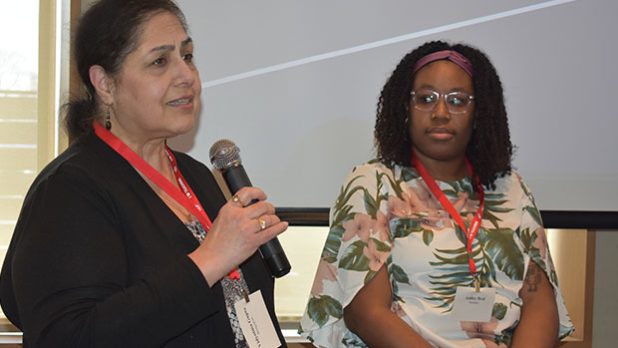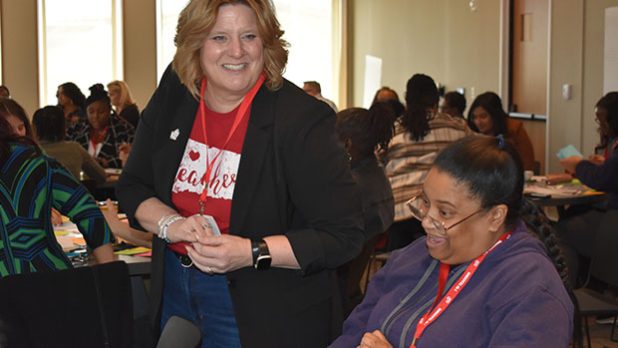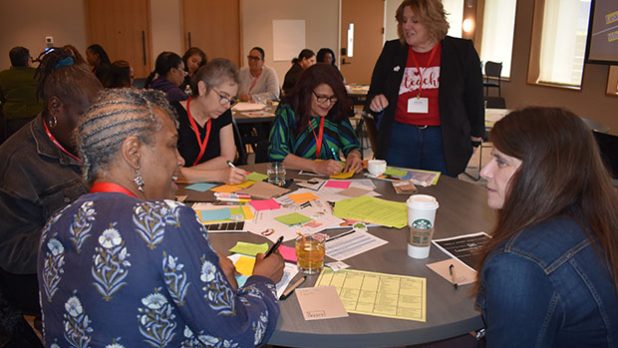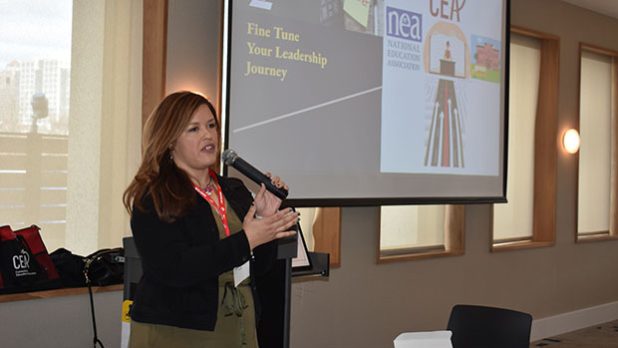Teaching is demanding work, and for educators of color, layers of complexity add to the challenge.
There’s the constant need to validate your abilities. The weight of extra responsibilities as a liaison, translator, and enforcer of discipline for students of color. Micromanagement, microaggressions, and the irony of being simultaneously hypervisible and invisible. And a path to leadership that can come with hurdles few others experience, acknowledge, or even see.
“The journey was not easy or straightforward,” says school social worker Loretha Felton, who chairs Hamden High School’s counseling department and the Hamden Racial and Ethnic Diversity Affairs Commission (REDAC). “I’m a proud supporter of our students in Hamden for 33 years, and I choose it every year.”
Felton, a panelist at CEA’s second annual Summit on Diversity, held April 5 in New Haven, described her path from Tuskegee, Alabama, where she was born and raised, to Atlanta, Georgia, where she attended graduate school, to New Haven, where she was a children’s mental health fellow, and finally Hamden, where she has made her career.
“Many forces worked against me getting to be who I am today,” Felton recalled. “Growing up in the deep South, it was not unusual to have a very racialized education system. I was part of an all-Black school system, with the exception of an academy where all white children went. Our public schools were separated and unequal. My father was brutally murdered when I was a freshman in high school. And I’m sharing this with you because many of our students have these kinds of experiences, and all those things can derail you.”
Representation matters
Identified as gifted and talented at a young age, Felton says her father’s death was a turning point for her as a student.
“My whole being went into survival mode, schoolwork became secondary, and my transcript showed that,” she says. “But I was able to get into Tuskegee University on academic probation because in my application, I said, ‘I don’t look good on paper, but give me a chance.’ All our children deserve a chance.”
Other opportunities presented themselves when a colleague, fellow social worker John Hanna, tapped her on the shoulder and recommended that she join him in his work both in the profession and in the union representing it.
“He spoke my name to the director of special education in Hamden, and that’s how I made my way there, and his work was the forerunner of Hamden’s Ethnic Minority Affairs Commission (EMAC, later renamed REDAC), where he organized to address and engage the union on issues of equity and inclusion—something we’re still in the process of doing. I stand on the shoulders of colleagues like Mr. Hanna and all those who came before me, and I say to you now that representation matters. Support matters.”
Answer the call
“When someone taps you on the shoulder, answer that call,” says Westport gifted teacher and REDAC Chair Faith Sweeney, who organized the summit. “CEA and REDAC are here to elevate the voices of educators of color, to connect, inspire, and uplift you, and to support your leadership journey.” Sweeney moderated the panel of leaders of color, who, in addition to Felton, included CEA and REDAC members and leaders, each speaking about their foray into education and leadership roles.
For Stamford math teacher Sandra Peterkin it started in Bridgeport, where she’d taught previously.
“One summer, I got a card in the mail about serving on a CEA commission, and I filled it out,” she recalls. “That’s how I began participating in the work of the Commission on Instruction and Professional Development, and every month I’d drive into Hartford, meet some great people, and have great discussions. And then one day, people were talking about CEA Summer Leadership, and I wondered, what’s that? It was a conference, and I started attending. My first year teaching in Stamford, my good friend and former local president said, ‘We’re going into negotiations, and I want you on our team.’ Every time there was a call, I answered that call.”
Danbury ESL teacher Luanelly Iglesias began her career in Waterbury, and early on, she described feeling alone.
“Then I went to a union meeting,” she said. “From there, someone suggested I join EMAC, and when I arrived at my first meeting I noticed, these people speak like me. I found my family, and like Sandra, I started driving to Hartford, spending time with a group of wonderful educators who inspired and empowered me—one of them being Faith—and I felt like I’d found my nest.”
Enlightened, engaged, empowered
In addition to getting involved, Iglesias encouraged colleagues to do the same at the local, state, and national levels of their union. “The more we empower ourselves, the better we can serve our communities of educators, children, and families.”
Third-year Hamden teacher Ashley Beal recalled getting her own tap on the shoulder from New Haven County Director and Hamden Legislative Council member Katie Kiely, who presented at the summit.
“Katie asked me, ‘Do you think you want to come with me to a meeting?’ So I did,” said Beal. “I joined REDAC, was invited to serve in a leadership role, went to conferences, and gained experiences I never thought I would as an early career educator.”
“As people see you and get to know you, they invite you to get involved in more things,” said Bridgeport third-grade teacher Mikeya Stovall, who joked that being asked to help in small ways with a group or program leads incrementally—but quickly—to chairing or leading the group or program. “’I saw you over there,’ someone will say, ‘and thought you might help us over here!’”
“I went to every CEA workshop I could fit in,” said Bridgeport science teacher Vidi Gupta, who came to teaching after a career as a physician. “I found everything interesting and wanted to be a part of it. I became a building rep, a delegate to the CEA and NEA RA, an EMAC chair. I found the more you do, the more you understand how much you can change the teaching and learning environment for the better.”
“We need to make sure our organization is inclusive and creates opportunities for all of us to be valued and represented,” said CEA President Kate Dias. “That’s why we keep looking to expand the work we do, make it more visible, and invite more people to the table. We need diverse voices in every single space we have. Think about what excites you and where your voice can elevate our profession.”

